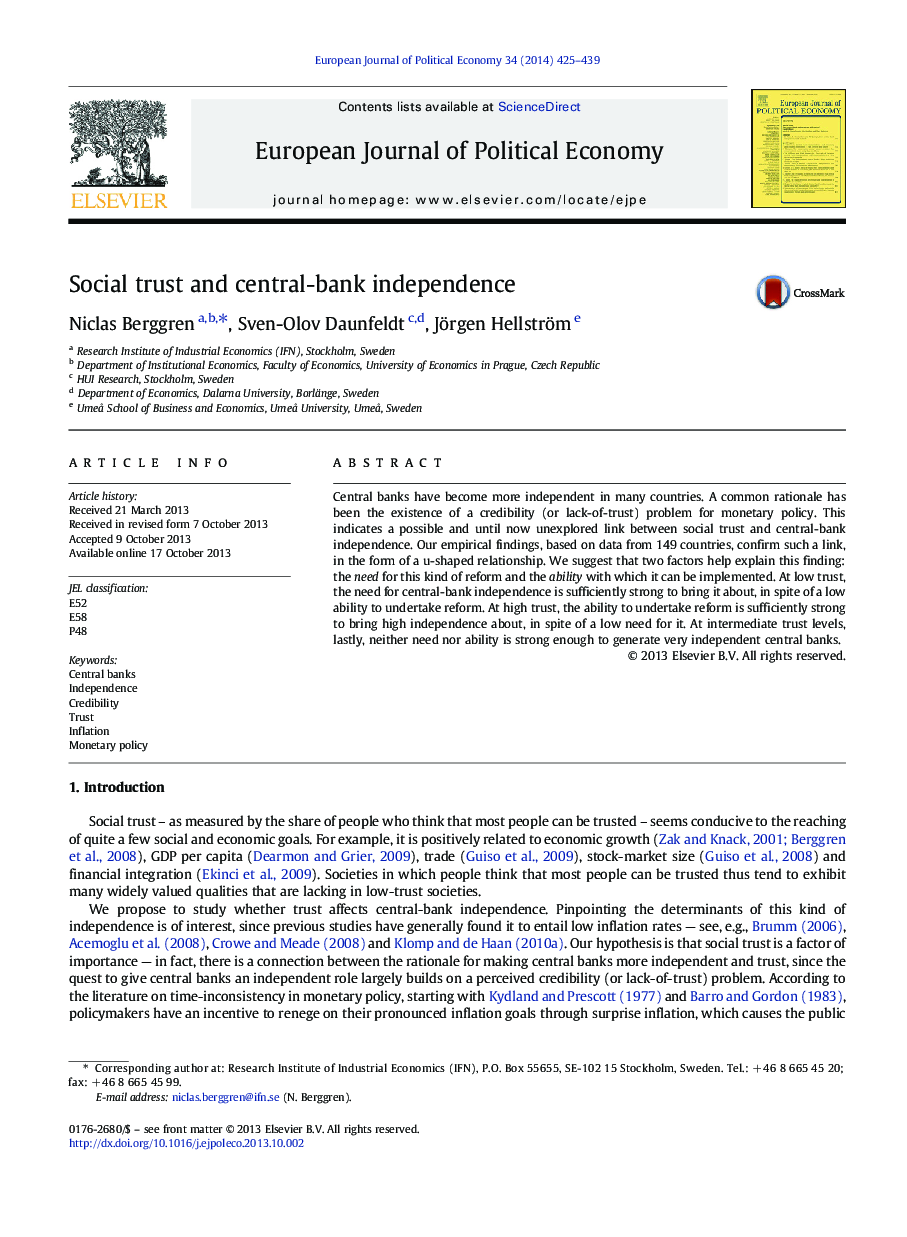| Article ID | Journal | Published Year | Pages | File Type |
|---|---|---|---|---|
| 5068113 | European Journal of Political Economy | 2014 | 15 Pages |
â¢We look at the relationship between social trust and central-bank independence.â¢Regression results from 149 countries imply a u-shaped relationship.â¢Low trust entails a need for independence.â¢High trust entails an ability to implement and sustain independence.â¢Hence low and high trust is associated with high independence for central banks.
Central banks have become more independent in many countries. A common rationale has been the existence of a credibility (or lack-of-trust) problem for monetary policy. This indicates a possible and until now unexplored link between social trust and central-bank independence. Our empirical findings, based on data from 149 countries, confirm such a link, in the form of a u-shaped relationship. We suggest that two factors help explain this finding: the need for this kind of reform and the ability with which it can be implemented. At low trust, the need for central-bank independence is sufficiently strong to bring it about, in spite of a low ability to undertake reform. At high trust, the ability to undertake reform is sufficiently strong to bring high independence about, in spite of a low need for it. At intermediate trust levels, lastly, neither need nor ability is strong enough to generate very independent central banks.
